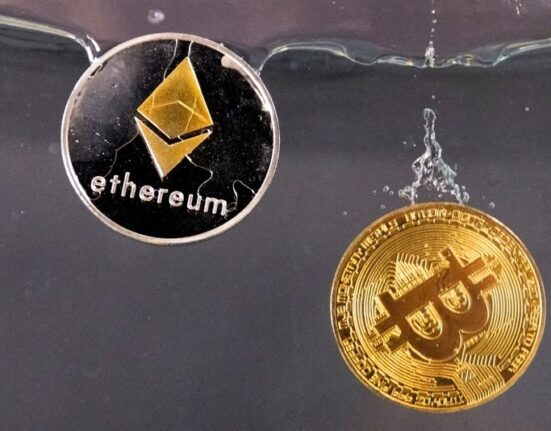HSBC has claimed a major breakthrough in applying quantum computing to financial markets. On Thursday, the bank said that experimental trials with IBM had delivered a 34% improvement in predicting bond trading outcomes. The trial is being touted as the first piece of empirical evidence that quantum hardware can deliver real-world value on the trading floor.
Quantum computing’s potential remains mostly theoretical, with many breakthroughs demonstrated under controlled conditions rather than in real-world trading. So far, these have largely been proofs of concept, showing promise without widespread practical application. Quantum chips take advantage of subatomic, quantum-level “uncertainty” that allows them to process multiple tasks in parallel. Traditional analog chips process tasks sequentially, and are thus far slower. Quantum computing can solve problems in minutes; analog chips would take hours, days or years to process the same calculations.
HSBC and IBM’s results were also derived from historical data rather than live trades, but the study does indicate that quantum computing could be useful for real-life markets. The trial was in collaboration with IBM and its Heron chip—the company’s latest and highest-performing quantum processor. It analyzed more than 1 million quote requests across 5,000 corporate bonds between September 2023 and October 2024.
The bank said the quantum-enabled model significantly outperformed standard classical techniques in estimating how likely a customer order would be filled at a quoted price. In over-the-counter bond markets, where assets are traded directly between counterparties rather than on centralized exchanges, even small gains in predictive accuracy can offer a competitive edge. IBM’s stock jumped 5% on Thursday following the announcement.
“We have been relentlessly focused on the near-term application of quantum technology, and given the trial delivered positive results on current quantum computing hardware, we have great confidence we are on the cusp of a new frontier of computing in financial services, rather than something that is far away in the future,” Philip Intallura, HSBC Group Head of Quantum Technologies, said.
“This is a ground-breaking world-first in bond trading. It means we now have a tangible example of how today’s quantum computers could solve a real-world business problem at scale and offer a competitive edge, which will only continue to grow as quantum computers advance,” he added.
Intallura predicted it would create a “flurry of activity” as rivals ramp up efforts to integrate the technology. Miklos Dietz, senior partner and managing partner of McKinsey’s Vancouver office, told Bloomberg: “If one bank is able to start using quantum computing to develop a program, then the others will be developing it the next day and people will not sleep until they have it.”
HSBC has claimed a major breakthrough in applying quantum computing to financial markets. On Thursday, the bank said that experimental trials with IBM had delivered a 34% improvement in predicting bond trading outcomes. The trial is being touted as the first piece of empirical evidence that quantum hardware can deliver real-world value on the trading floor.
Quantum computing’s potential remains mostly theoretical, with many breakthroughs demonstrated under controlled conditions rather than in real-world trading. So far, these have largely been proofs of concept, showing promise without widespread practical application. Quantum chips take advantage of subatomic, quantum-level “uncertainty” that allows them to process multiple tasks in parallel. Traditional analog chips process tasks sequentially, and are thus far slower. Quantum computing can solve problems in minutes; analog chips would take hours, days or years to process the same calculations.
HSBC and IBM’s results were also derived from historical data rather than live trades, but the study does indicate that quantum computing could be useful for real-life markets. The trial was in collaboration with IBM and its Heron chip—the company’s latest and highest-performing quantum processor. It analyzed more than 1 million quote requests across 5,000 corporate bonds between September 2023 and October 2024.
The bank said the quantum-enabled model significantly outperformed standard classical techniques in estimating how likely a customer order would be filled at a quoted price. In over-the-counter bond markets, where assets are traded directly between counterparties rather than on centralized exchanges, even small gains in predictive accuracy can offer a competitive edge. IBM’s stock jumped 5% on Thursday following the announcement.
“We have been relentlessly focused on the near-term application of quantum technology, and given the trial delivered positive results on current quantum computing hardware, we have great confidence we are on the cusp of a new frontier of computing in financial services, rather than something that is far away in the future,” Philip Intallura, HSBC Group Head of Quantum Technologies, said.
“This is a ground-breaking world-first in bond trading. It means we now have a tangible example of how today’s quantum computers could solve a real-world business problem at scale and offer a competitive edge, which will only continue to grow as quantum computers advance,” he added.
Intallura predicted it would create a “flurry of activity” as rivals ramp up efforts to integrate the technology. Miklos Dietz, senior partner and managing partner of McKinsey’s Vancouver office, told Bloomberg: “If one bank is able to start using quantum computing to develop a program, then the others will be developing it the next day and people will not sleep until they have it.”











Leave feedback about this